In this issue, Index on Censorship magazine explores the mixed reaction to the Soviet Union’s new policy of greater openness and “restructuring” proclaimed by the Gorbachev leadership.
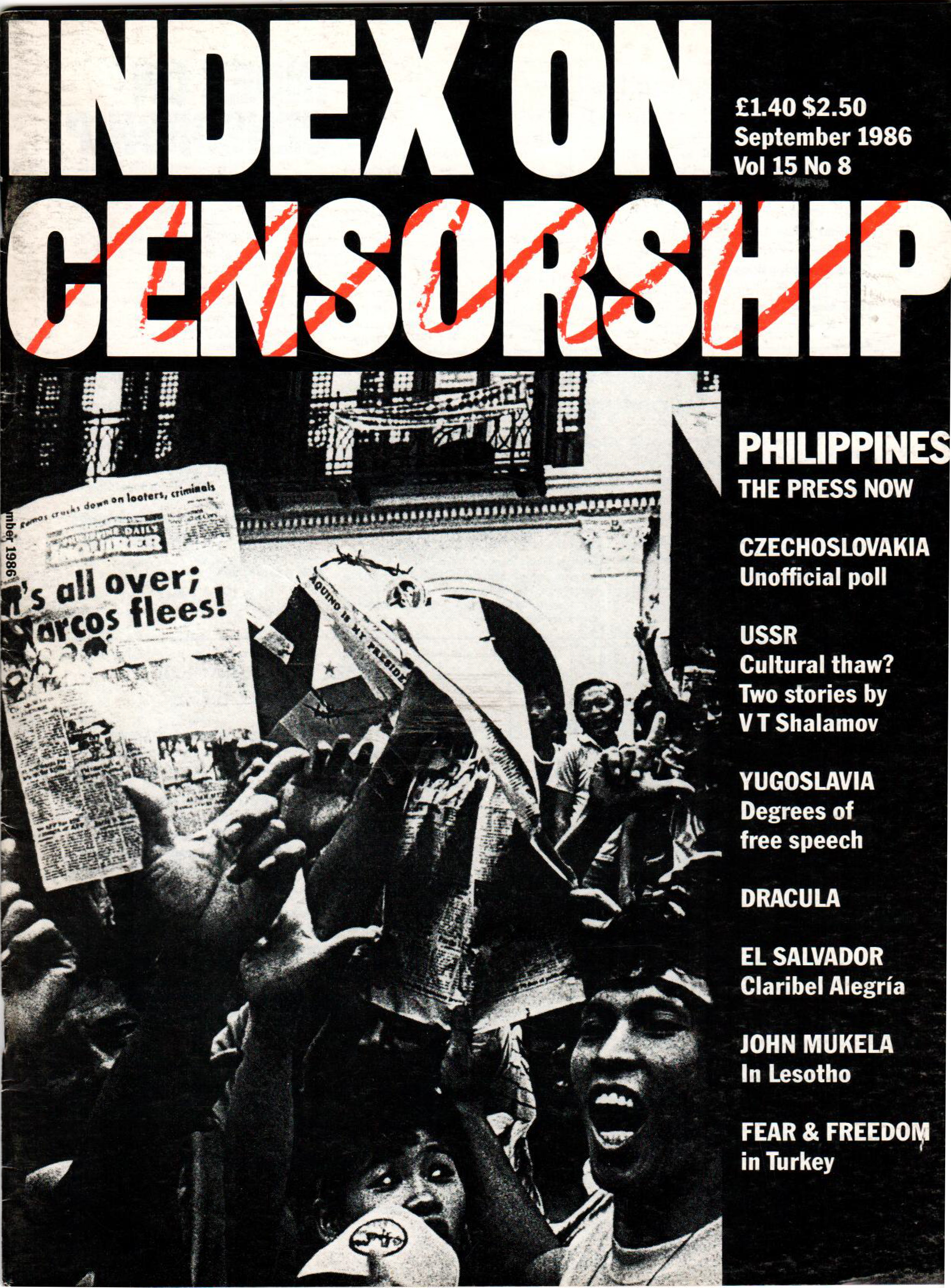

In this issue, Index on Censorship magazine explores the mixed reaction to the Soviet Union’s new policy of greater openness and “restructuring” proclaimed by the Gorbachev leadership.

In this issue, Index reports on the limitations on freedom of the press in South Africa following the 12 June declaration of a State of Emergency.
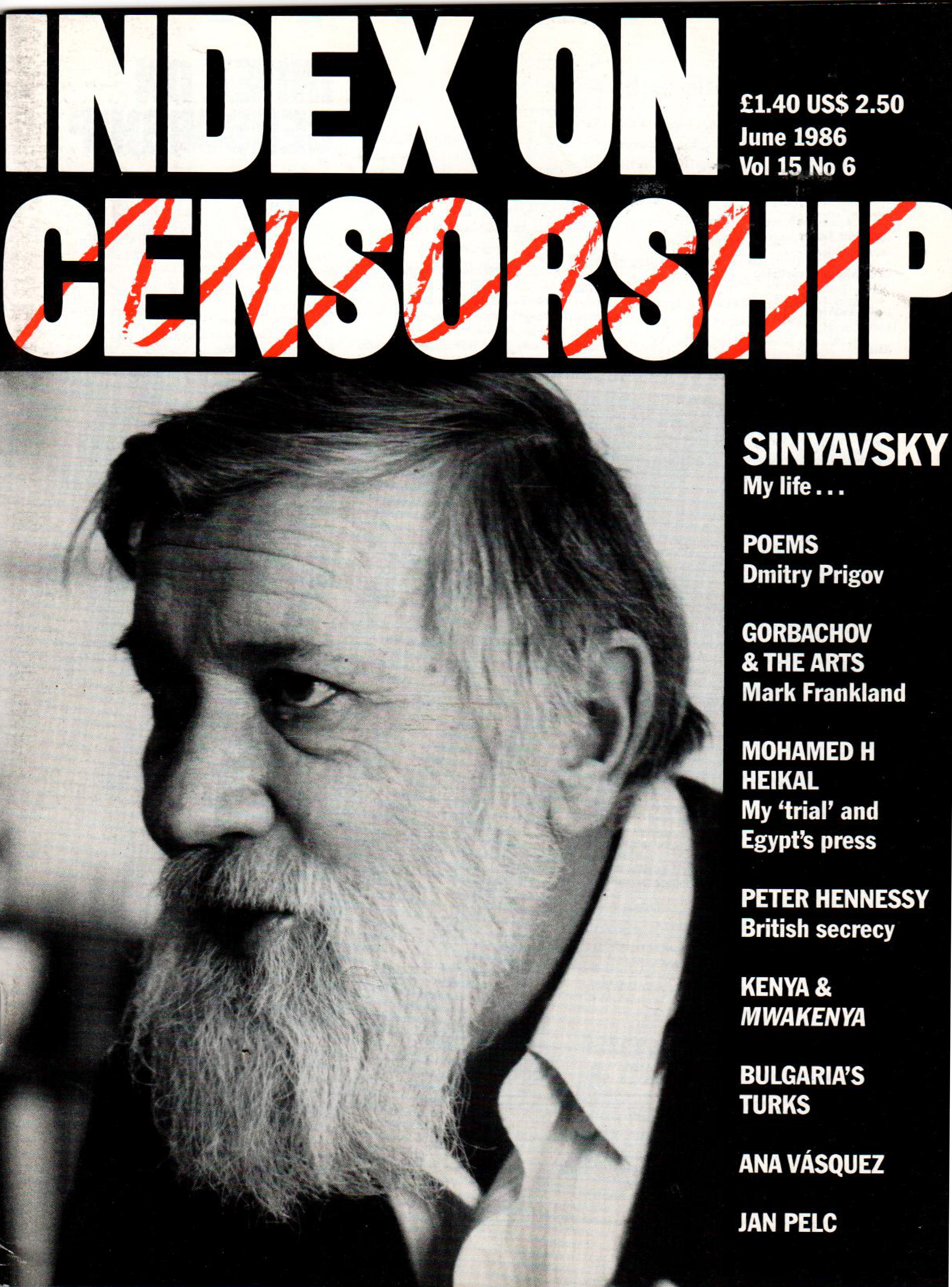
In this issue, Index reports on Andrei Sinyavsky’s new memoir which outlines his experiences as a writer and Russian dissident.
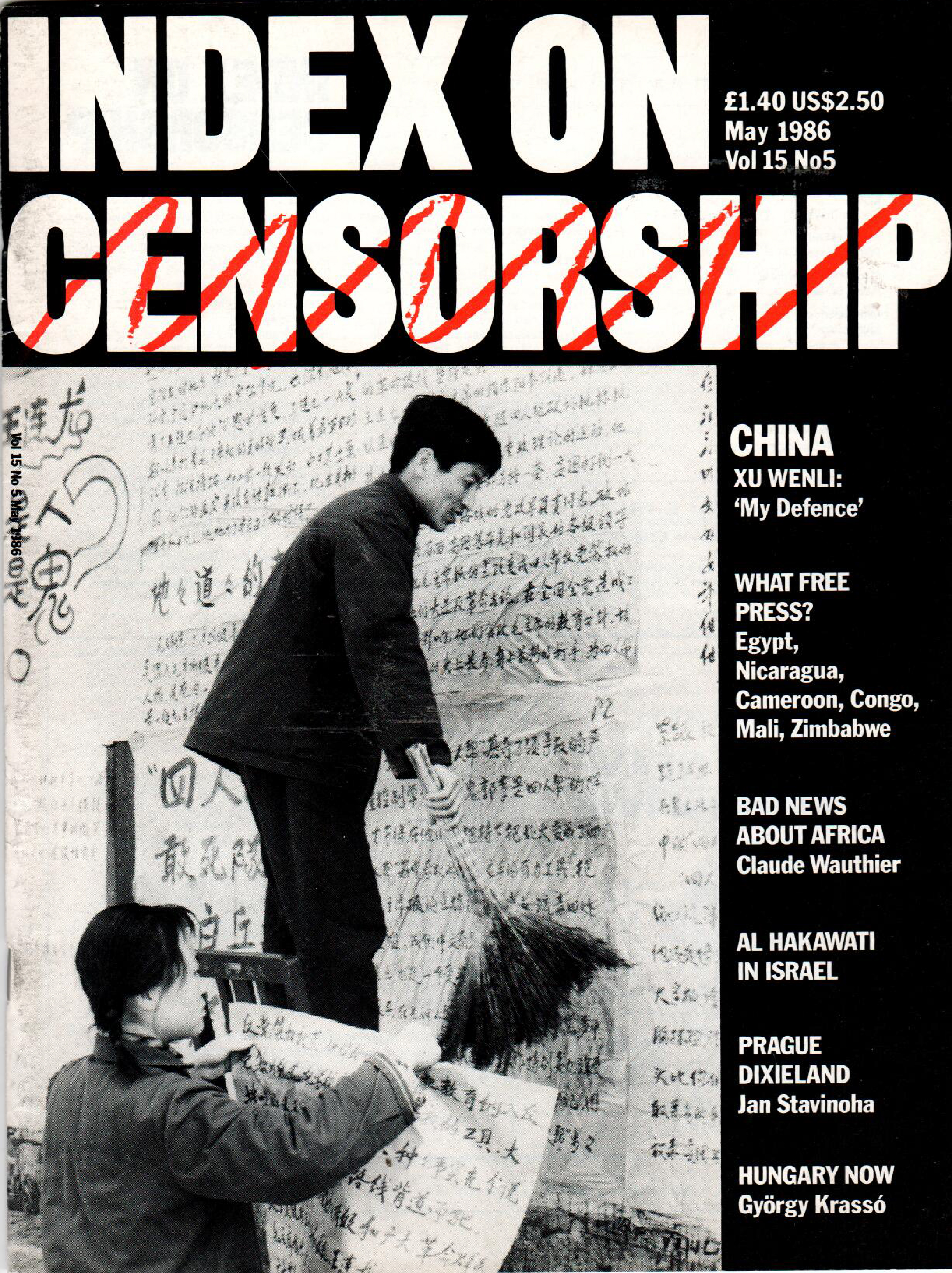
In this issue, Index publishes excerpts from a 262-page manuscript Chinese editor, Xu Wenli, has managed to smuggle out of prison.
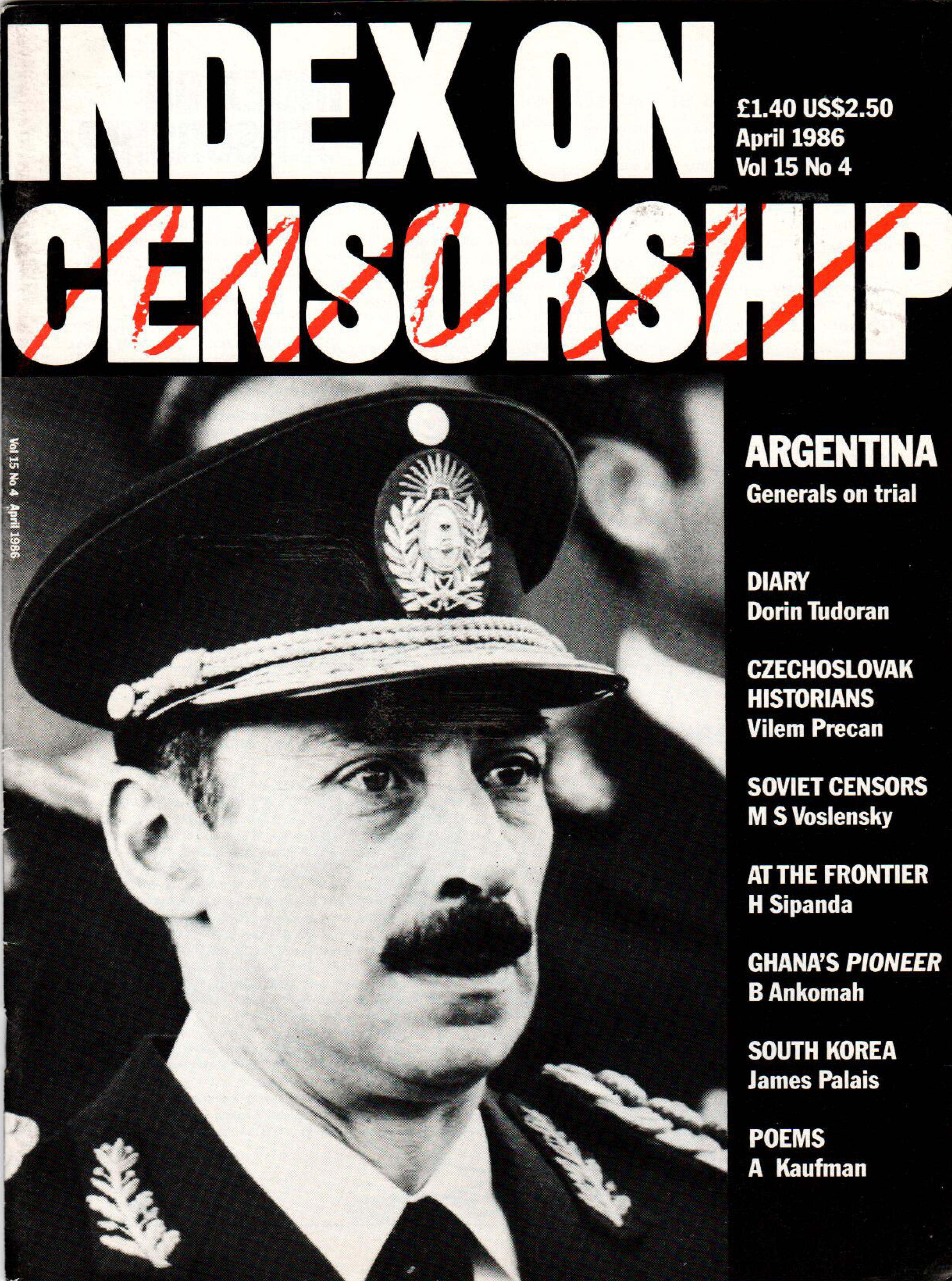
In this issue, Index explores the trial of nine former Argentine generals and the likely consequences.
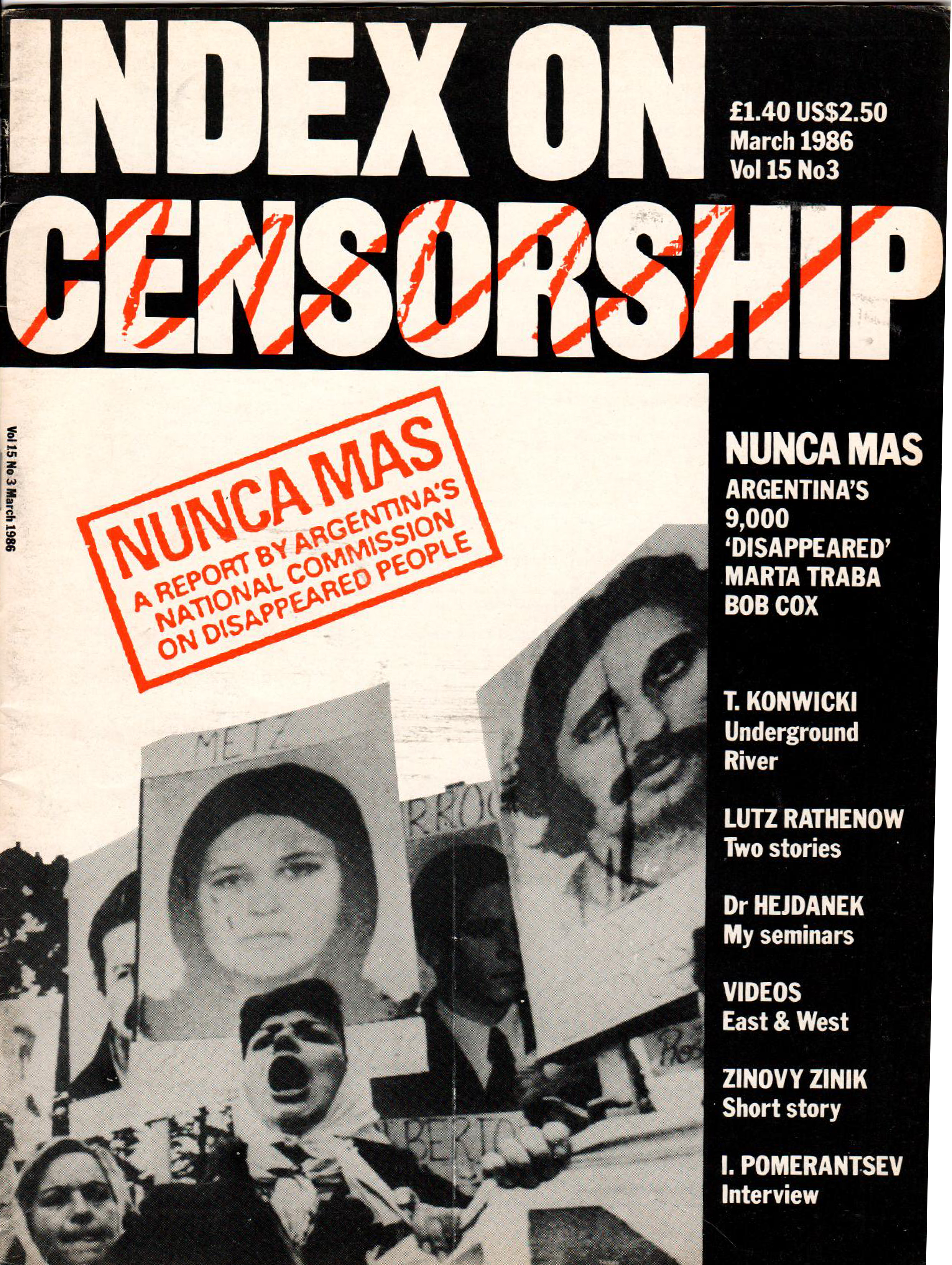
In this issue, Index publishes excerpts from Nunca Mas, the report commissioned by Argentinian President Alfonsin on the 9,000 disappearances in Argentina.
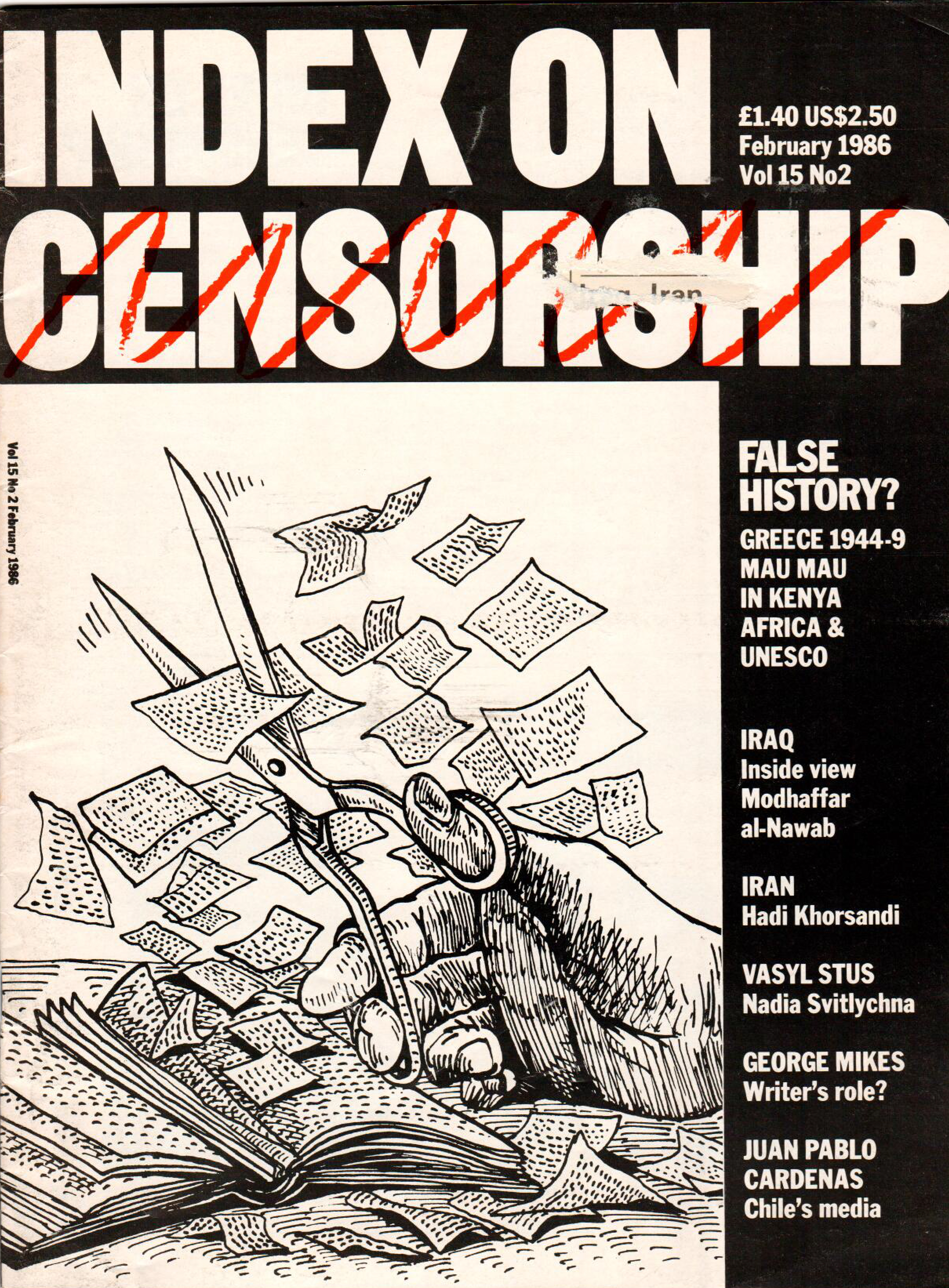
In this issue, Index reports the way history is distorted in Greece and Kenya, and on various aspects of African historiography.
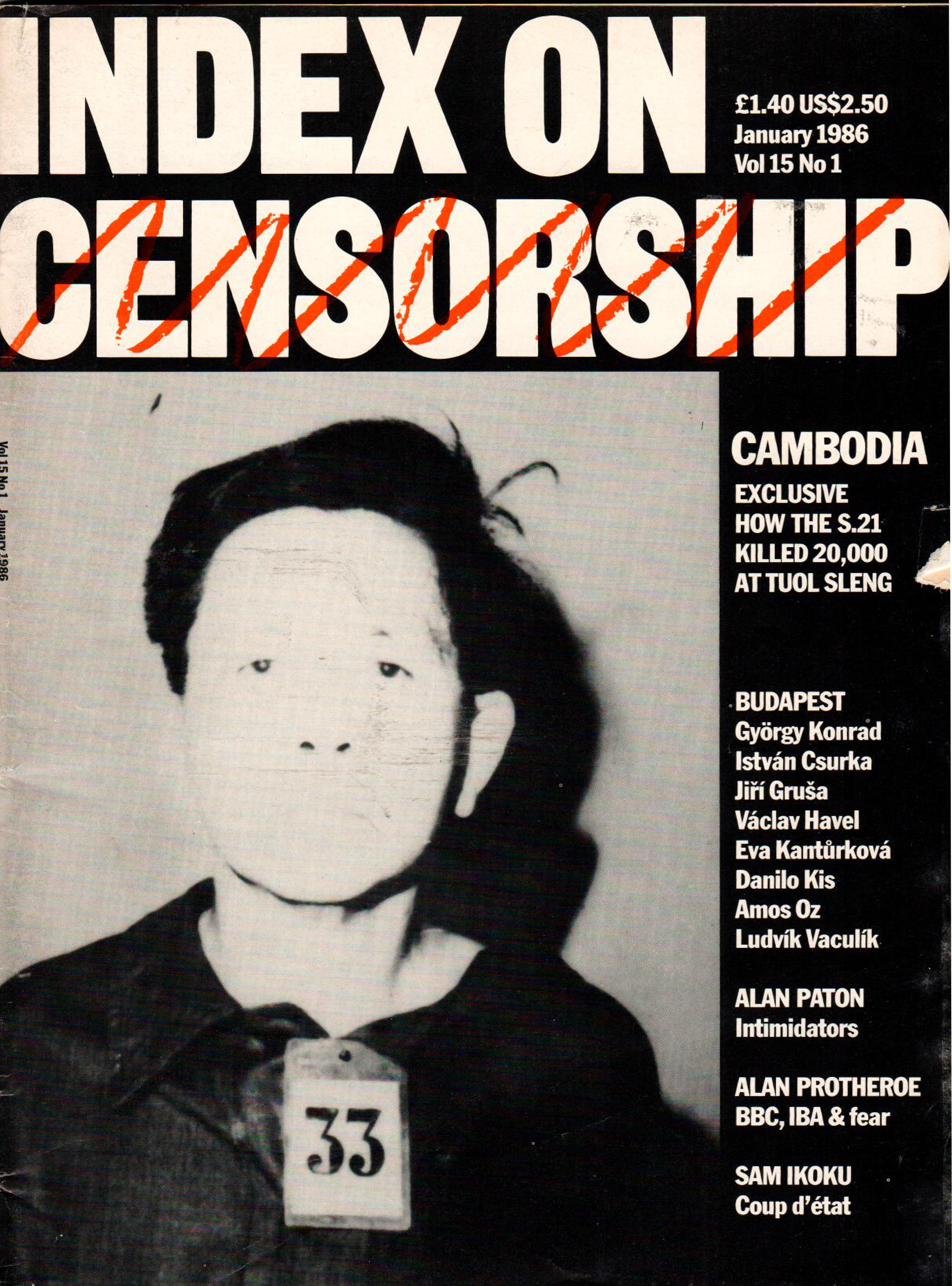
In this issue, Index reports on the arrest, torture, forced confessions and execution of 20,000 prisoners in Cambodia’s Tuol Sleng prison.

In this issue, Index interviews prominent publisher Mustafa Amin who gives his own account of the state of press freedom in Egypt.

In this issue, Index includes a short story by author and dissident Andrzej Szczypiorski which explores love and other intrigues of life in Poland.
A quarterly journal set up in 1972, Index on Censorship magazine has published oppressed writers and refused to be silenced across hundreds of issues.
The brainchild of the poet Stephen Spender, and translator Michael Scammell, the magazine’s very first issue included a never-before-published poem, written while serving a sentence in a labour camp, by the Soviet dissident Aleksandr Solzhenitsyn, who went on to win a Nobel prize later that year.
The magazine continued to be a thorn in the side of Soviet censors, but its scope was far wider. From the beginning, Index declared its mission to stand up for free expression as a fundamental human right for people everywhere – it was particularly vocal in its coverage of the oppressive military regimes of southern Europe and Latin America but was also clear that freedom of expression was not only a problem in faraway dictatorships. The winter 1979 issue, for example, reported on a controversy in the United States in which the Public Broadcasting Service had heavily edited a documentary about racism in Britain and then gone to court attempting to prevent screenings of the original version. Learn more.